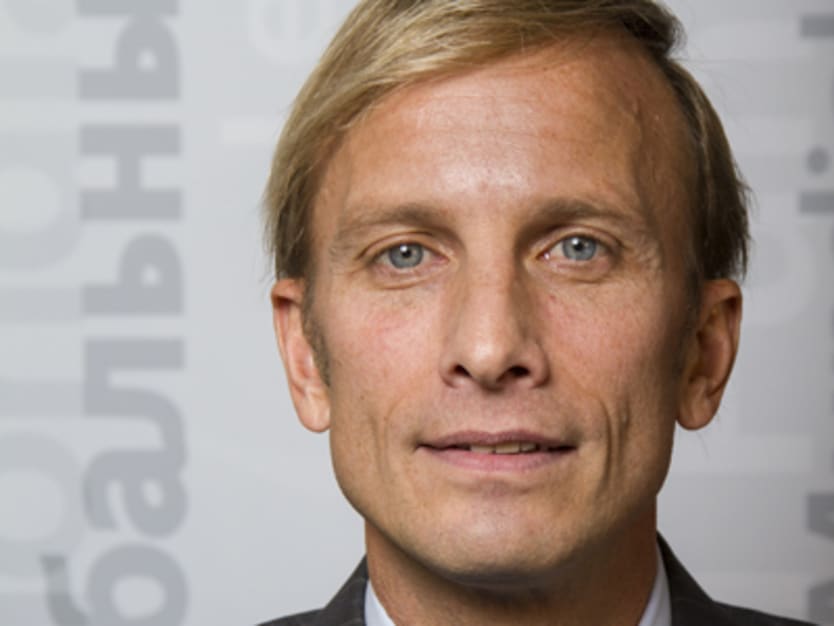
In a blog post he wrote for Mothers’ Day 2010, former U.S. Global AIDS Coordinator Mark Dybul stressed the need to make women and children the “entry points” in delivering health-related development goals. He also pitched an ambitious idea on how to achieve this vision.
“One possibility is to transform the Global Fund to Fight AIDS, Tuberculosis and Malaria to a Global Fund — a unique global public/private financing partnership created by world leaders in 2002 — for the health-related [Millennium Development Goals],” he wrote on the Huffington Post.
Dybul, a Georgetown University-trained doctor with extensive background in international development, is now in a good position to pursue — if not realize — that proposal, which is also backed by several other world leaders and development experts.
The Global Fund has named Dybul its next executive director. He starts in 2013 — joining the organization as it ushers in a “new chapter” with changes to its funding model and new chiefs for human resources and procurement. The organization has also just fired its inspector general, John Parsons.
Dybul is a well-respected figure in the global health community, especially for his work in U.S. efforts to prevent HIV and treat AIDS. He is widely recognized as one of the principal architects of the plan that eventually became the U.S. President’s Emergency Plan for AIDS Relief. He went on to lead the implementation of PEPFAR in Asia and Africa as the United States’ first-ever global AIDS Coordinator — a position he held from 2006 to 2009.
Under Dybul, PEPFAR saw its funding jump significantly. That’s something the Global Fund is likely hoping to see as well, and Dybul has already promised that raising funds would be among his priorities.
“We will be very aggressive” in working to boost the Global Fund’s resources and its contributions, he told Reuters shortly after his appointment was announced. That he is s a U.S. citizen may help Dybul’s cause; the country is the biggest contributor to the fund.
He has also pledged to be more aggressive in getting money out the door. Donors and the Global Fund board would, however, expect him to do so in a way that protects the organization from fraud and misuse. To do this, Dybul might look back to his years as chair of the funds’ finance and audit committee.
On a personal note, Dybul has shown deep commitment in the fight against the three diseases. He currently co-heads the Global Health Law Program of Georgetown University’s O’Neill Institute for National and Global Health and is senior counselor for the Global Business Coalition on HIV, Tuberculosis and Malaria. He also served as managing director of the Office of the U.N. Special Envoy for Malaria.
Much of his professional career, however, was dedicated to the fight against AIDS. He has published several journals and blog posts about the disease. And as a doctor, he has treated HIV patients as well — both in the United States and in Africa.
Interconnectedness of health issues
Just as he is no stranger to overseeing billions of dollars’ worth of aid funds, Dybul has had his own share of controversies. Most notably, he was asked to resign as global AIDS coordinator following the election of U.S. President Barack Obama in 2008 despite initial reports he would be retained. There were various speculations around the issue, including his alleged involvement in efforts to steer PEPFAR money to abstinence-only programs.
But Dybul has more recently expressed support for different kinds of HIV and family planning interventions.
“Providing women and their families with the access to an array of effective, evidence-based programs allows them to select the approach that meets their needs and belief systems is the best strategy to ensure programs are used and the most lives are saved and families are lifted up,” he said in a blog post about the London Summit on Family Planning in July.
He also noted: “Scientific advances could give individuals the ability to determine the prevention intervention that works best for them.”
And despite working mostly on AIDS and HIV, Dybul is a firm believer in the interconnectedness of health issues. His proposal to transform the Global Fund is just one proof.
“No health issue stands alone,” he wrote in his Mothers’ Day blog. “If we have learned anything these past few years in global health, it is that nutrition, the health of mothers and children, malaria, HIV,tuberculosis, neglected tropical diseases and clean water … are interconnected.”
This vision, along with his track record, has earned for him the backing from health experts, health ministers and other development officials as he assumes yet another high-profile global health position. And with his appointment comes what appears to be renewed confidence in an organization that saw what its former executive director, Michel Kazatchkine, has described as a “year of turbulence.”
Some groups, like the U.S.-based think tank Center for Global Development, have already outlined top priorities for Dybul. The general expectation, however, is that he builds on reforms rolled out and supervised by Gabriel Jaramillo, the banker who agreed to oversee daily operations at the Global Fund for a year. Jaramillo is stepping down by the end of 2012.
If he remains true to his words, Dybul is prepared to rise up to, and even exceed, that expectation. He, after all, believes that “the greatest danger is being complacent, thinking that we have accomplished enough, and we don’t have to constantly modify and learn and change.”
Read more on development aid news online, and subscribe to The Development Newswire to receive top international development headlines from the world’s leading donors, news sources and opinion leaders — emailed to you FREE every business day.








